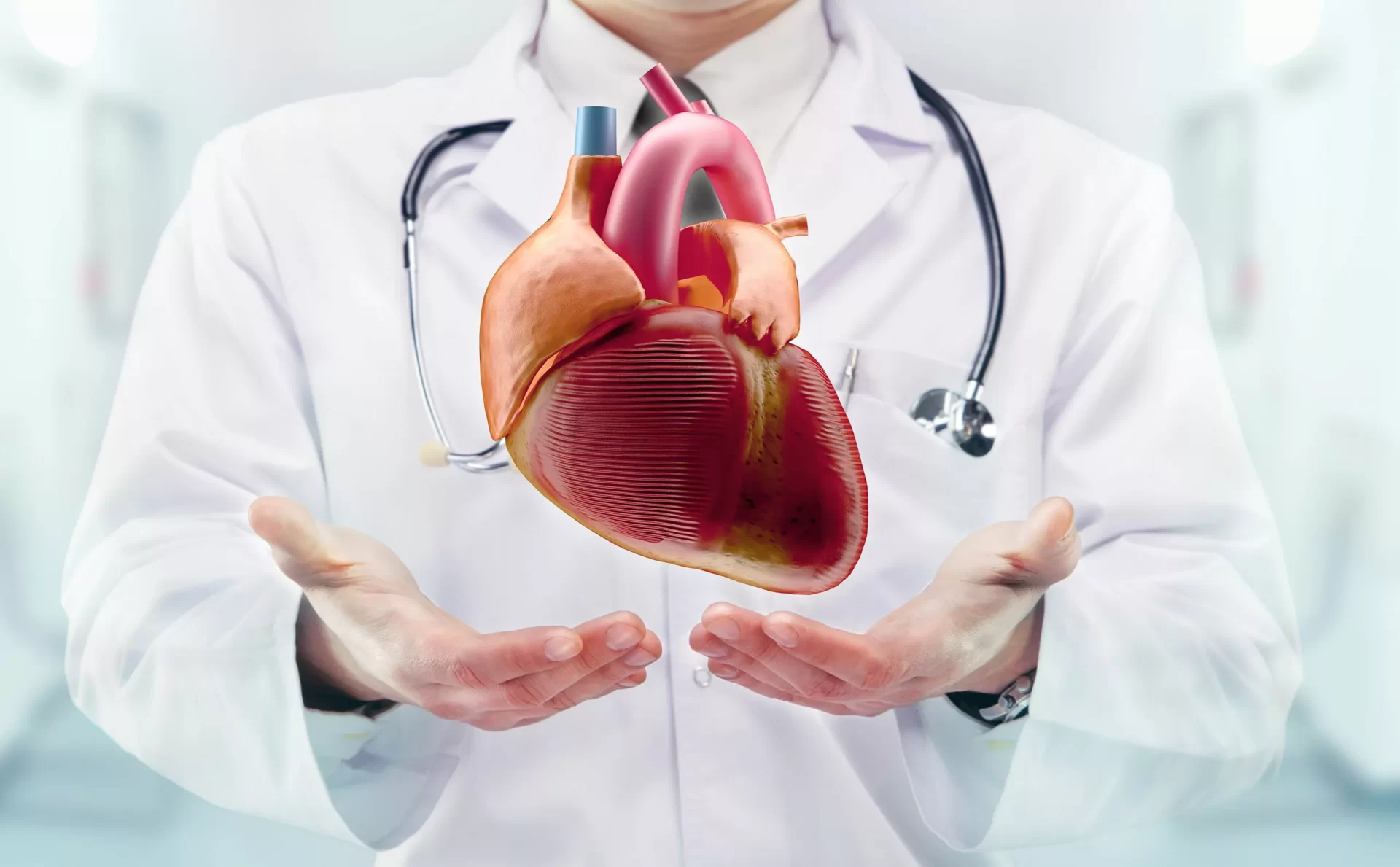Are you looking for a heart specialist Sydney to help manage your cardiovascular condition? Look no further! A renowned heart specialist in Sydney has various treatment plans to help you manage your condition. Here, we provide an overview of the seven proven treatment plans available from this heart specialist in Sydney. Read on to learn more!
Diagnostic Testing for Cardiovascular Conditions
If you’re experiencing chest pain, shortness of breath, or irregular heartbeat, seeking medical attention from a heart specialist is important. One of the first steps a heart specialist in Sydney will take is to perform diagnostic testing to determine the cause of your symptoms and the best course of treatment. Here are some of the diagnostic tests that a heart specialist may perform:
- Electrocardiogram (ECG): An ECG is a simple test that measures the heart’s electrical activity. This test can help detect abnormal heart rhythms and signs of damage to the heart.
- Echocardiogram: An echocardiogram uses ultrasound waves to create heart images. This test can help detect heart structure and function problems, such as valve defects or heart failure.
- Cardiac catheterization: During cardiac catheterization, a thin tube is inserted into a blood vessel in the arm or leg and guided to the heart. This test can help detect blockages in the coronary arteries that supply blood to the heart.
- CT angiography: CT angiography is a non-invasive test that uses X-rays to create detailed images of the heart and blood vessels. This test can help detect blockages in the coronary arteries and other problems with blood flow.
By performing these diagnostic tests, a heart specialist in Sydney can accurately diagnose your condition and develop an individualized treatment plan for you. Take your time, seek medical attention today if you are experiencing symptoms related to cardiovascular conditions.
Lifestyle Changes for Heart Health
One of the most effective ways to improve heart health is to make positive lifestyle changes. Here are some recommendations that a heart specialist in Sydney may suggest to improve cardiovascular health:
1. Quit Smoking:
Smoking increases the risk of heart disease, stroke, and other cardiovascular conditions. Quitting smoking is one of the best things you can do for your heart health.
2. Adopt a Healthy Diet:
A diet high in fruits, vegetables, whole grains, lean protein, and healthy fats can reduce the risk of heart disease. Avoid foods high in saturated and trans fats, sodium, and added sugars.
3. Maintain a Healthy Weight:
Being overweight or obese can increase the risk of heart disease and other health problems. Losing weight and maintaining a healthy weight can improve cardiovascular health.
Medications for Heart Conditions
Heart conditions are prevalent and often require medication to manage. Fortunately, there are several effective medications that can help keep your heart healthy and functioning well. Your heart specialist in Sydney will carefully consider your unique health history and needs to develop a treatment plan that incorporates the most appropriate medications. Here are some of the medications commonly used to treat heart conditions:
ACE Inhibitors:
These medications help lower blood pressure by relaxing blood vessels. They can also help reduce strain on the heart, especially in people with heart failure.
Beta-blockers help regulate heart rate and reduce blood pressure by blocking the effects of adrenaline on the heart. They can also be helpful in managing arrhythmias (irregular heartbeats).
Calcium Channel Blockers:
These medications help relax blood vessels, improve blood flow, and reduce blood pressure. They are also effective in treating angina (chest pain caused by reduced blood flow to the heart).
Diuretics help eliminate excess fluid from the body, which can help reduce blood pressure and ease the workload on the heart. They are commonly used to treat high blood pressure, heart failure, and edema (swelling caused by fluid retention). Statins are cholesterol-lowering medications that can help reduce the risk of heart disease and stroke by lowering LDL (bad) cholesterol levels.
Coronary Angioplasty and Stenting
Coronary angioplasty and stenting are minimally invasive procedures that are performed by a heart specialist in Sydney to treat heart disease. This procedure involves inserting a small balloon-tipped catheter into the affected artery and inflating it to widen the artery and improve blood flow.
In many cases, the heart specialist may also insert a small metal mesh tube, called a stent, into the artery to keep it open. This helps to prevent future blockages and improve blood flow to the heart.
Coronary angioplasty and stenting are usually performed in the hospital under local anaesthesia, and the patient can go home the same day or the next day.
This procedure is recommended for patients who have significant blockages in their arteries and who are at high risk for heart attack or stroke. It is also a good option for patients who cannot undergo open-heart surgery due to other health issues.
Pacemaker Implantation
A pacemaker is a small device that is implanted under the skin in your chest. It sends electrical signals to your heart to regulate your heartbeat. If you have an irregular or slow heartbeat, your heart specialist may recommend a pacemaker implantation to regulate your heart rate.
Pacemaker implantation is a relatively simple and safe procedure that is performed under local anaesthesia. During the procedure, your heart specialist will make a small incision in your chest and insert the pacemaker device. They will then attach one or more wires, called leads, to the device and guide them to your heart.
Once the pacemaker is in place, it will begin to monitor your heart’s activity and deliver electrical signals as needed. Your heart specialist will program the pacemaker to meet your specific needs and ensure that it is functioning properly.
After the procedure, you will need to rest for a few hours before being discharged from the hospital. You will be given instructions on how to care for your incision site and how to monitor your pacemaker at home. You will also be given a device called a programmer that allows you to adjust your pacemaker’s settings if necessary.
Coronary Artery Bypass Surgery
Coronary Artery Bypass Surgery, also known as CABG, is a surgical procedure performed by a heart specialist to treat blocked or narrowed arteries that supply blood to the heart. During the procedure, a blood vessel from another part of the body, such as the leg, is grafted onto the blocked artery, bypassing the blocked area and allowing blood to flow freely to the heart.
CABG is typically recommended for individuals who have severe blockages or narrowing in multiple arteries, or for those who have not responded well to other treatment options, such as medications or lifestyle changes. It can also be an emergency procedure for those experiencing a heart attack.
CABG is a major surgery that requires a hospital stay and several weeks of recovery time. However, it can greatly improve the quality of life for those suffering from heart conditions by reducing symptoms such as chest pain, shortness of breath, and fatigue.
Valve Repair or Replacement Surgery.
Valve repair or replacement surgery is another treatment option for patients with cardiovascular conditions. This surgery may be necessary if the heart valves are not functioning properly, causing issues such as regurgitation or stenosis.
During the procedure, the heart specialist will either repair the damaged valve or replace it with a new one. Valve repair is typically done if the damage is minimal and can be easily corrected, whereas replacement is required if the damage is too severe to be repaired.
There are several types of heart valve replacement options available, including mechanical and biological valves. Mechanical valves are made of durable materials, such as metal or carbon, and can last for a long time. Biological valves, on the other hand, are made from human or animal tissue and tend to have a shorter lifespan.
Conclusion
If you or a loved one are facing a cardiovascular condition, it’s important to work closely with a qualified heart specialist to determine the best treatment plan for your unique needs. From diagnostic testing to lifestyle changes, medication management, and surgical procedures, there are a variety of effective options available for treating heart conditions and improving overall cardiovascular health.
By partnering with a trusted heart specialist in Sydney, you can feel confident that you are receiving the highest quality of care and guidance throughout your treatment journey. Don’t hesitate to reach out and schedule a consultation today to learn more about how these proven treatment options can help you or your loved one overcome cardiovascular challenges and lead a happier, healthier life.
| Other Good Articles to Read |
| Blogs Rain |
| Cme Blog Spot |
| Garcias Blogs |
| Yyc Blogs |
| Guiade Blogs |
| Blogs-Hunt |
| Impact-Blog |
| Smarty Blogs |
| Ed Blog |
| Mo Blogs |
| Blogs Em |
| Blogs T |



